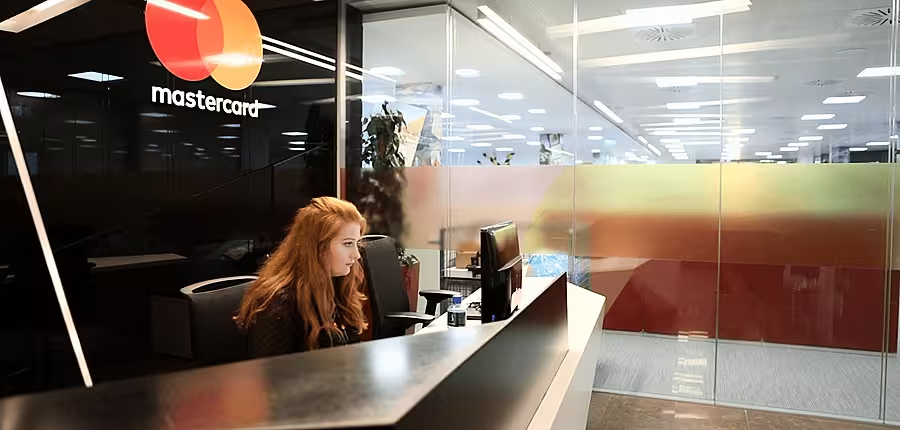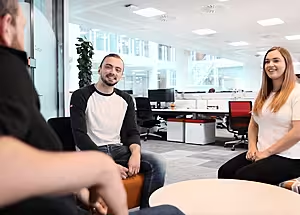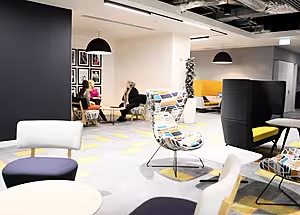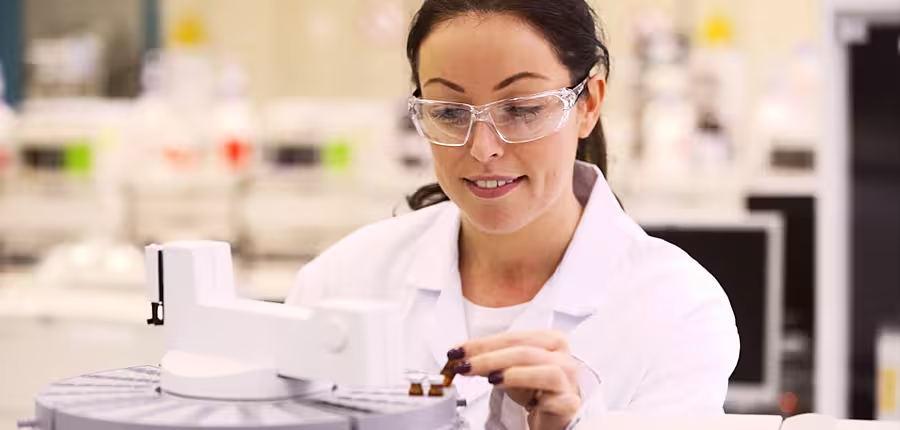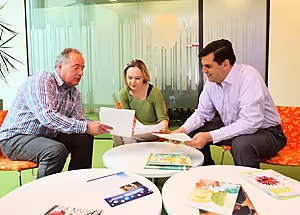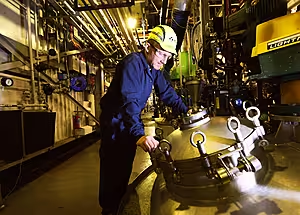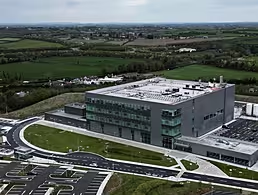We heard from some HR leaders at Mastercard and MSD about what employers and employees might be able to expect in 2020.
The future of work has been a talking point for many in recent years. Now, particularly with the turn of the decade, it’s clear that we’re already changing up the ways we go about our duties as well as what we expect from our workplaces.
Flexible working is one concept that might spring to mind. From advances in technology giving us the ability to work remotely, to contemporary co-working spaces cropping up around the country, the way we work is transforming. But what does it look like in different sectors?
We talked to HR professionals working in two different companies – one in financial services and the other in life sciences – to hear their thoughts on working life in 2020 and beyond.
Employees want to see ‘growth potential’
Talent acquisition manager at Mastercard, Gary Lawson, spoke about the evolving priorities of employees, including their penchant for continuing to learn throughout their career. “In our rapidly changing world, employees want the ability to develop new skills and try new things,” he said.
In a report published at the end of last year, online learning platform Udemy offered some insights that support Lawson’s words. In the face of automation, for example, Udemy noted that most of the respondents to its survey expressed excitement for learning the new skills that will come with this change.
And that will have tangible impacts on companies recruiting throughout the year, Lawson explained. “When assessing whether they can build a career in your company, candidates want to see opportunities beyond the immediate role they are applying for. They want to see growth potential.
“Companies who cannot offer learning and development support as well as clear opportunities for internal moves – both lateral and upward – will find it hard to attract top talent.”
Breaking down silos
At MSD, new technologies have led to massive changes in the company’s pharma products and how they’re manufactured, according to HR lead Lorraine Kenny.
In turn, that has an impact on the people working there, who must interact with “more complex manufacturing systems” and their supporting processes, which are “becoming increasingly paperless and tech driven”, she said.
But, like Mastercard, employees at MSD are benefitting from emerging tech through learning opportunities. “Indeed, AI, smart technology and big data are playing a more significant role in our business, providing greater flexibility and insights that drive greater efficiencies,” Kenny said.
“These new innovative approaches are also translating to how each employee collaborates – teams now rarely work in silos. Instead, our focus as we move to greater innovative approaches is knowledge-sharing and building cross-functional networks.”
‘Employers need to remain creative’
Critical to maintaining that momentum is “maximising the skills of our workforce to keep pace with digital transformation”, MSD’s talent acquisition lead, Maria Cullen, added.
“It will be vital that ‘Ireland Inc’ continues to nurture and foster future talent, focusing on education and skills development, and creating policies that encourage the best and brightest talent from across the world to take up careers here.”
Cullen’s advice for companies seeking new hires this year included showcasing “greater mobility and flexibility”.
“With the traditional nine-to-five working day model becoming obsolete, employers need to remain creative in their offering,” she said. “Companies hiring in 2020 will need to showcase greater mobility and flexibility in order to attract the best people.
“Providing opportunities to enable talent to be harnessed outside of the traditional workplace and allowing employees to take control of their work schedule is increasingly desired by jobseekers.”

